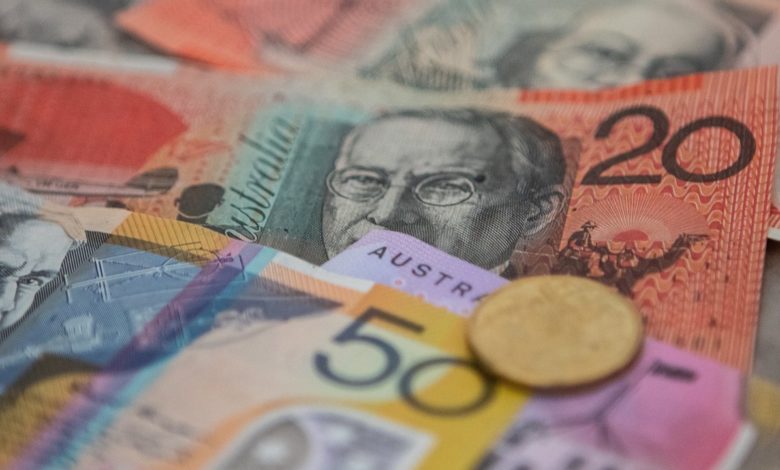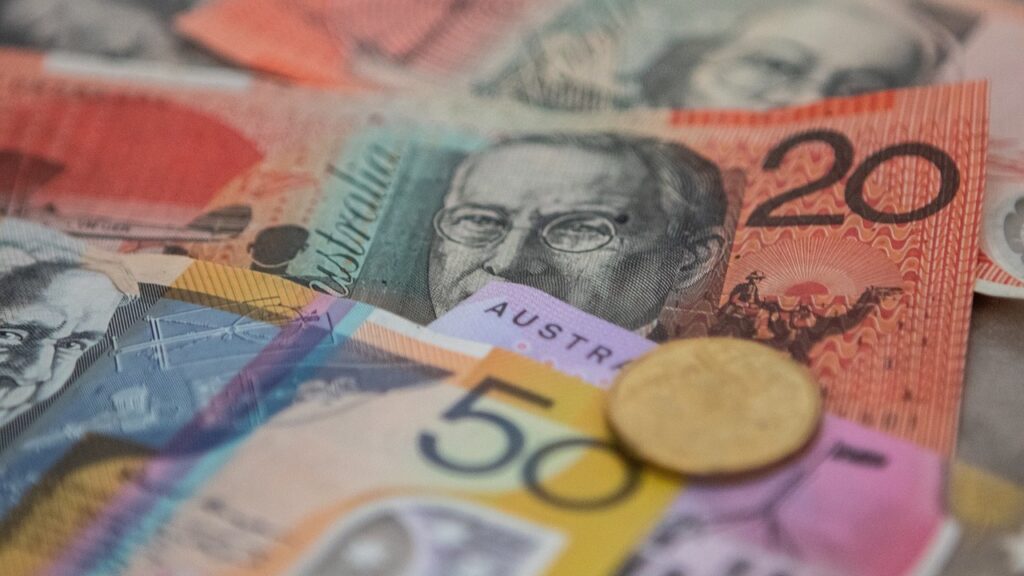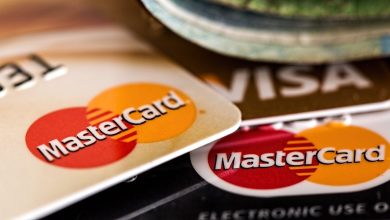Australia Ratcheting Up War on Cash

Australia has become the front line in the war on cash with an aggressive effort to ring physical money out of the economy.
Over the last financial year, more than a billion dollars worth of physical cash disappeared from circulation, according to data released by the Reserve Bank of Australia (RBA). The Australian news service 9News called it “the strongest sign yet” that the country is moving toward a cashless society.
The number of $50 notes in circulation charted the sharpest decline.
Australia transitioned from pounds to Australian dollars in 1966. Every year since then, the number of notes in circulation had increased up until this year.
Meanwhile, three of Australia’s ‘big four’ banks recently opened cashless branches, and according to the RBA’s website, it is exploring a central bank digital currency.
But while the amount of cash available has decreased, Australians increasingly want to use cash. An RBA survey of consumer trends reveals that 33% of Australians consider themselves “low cash users” meaning they use physical money for less than 20% of personal transactions. That was down from nearly 50% in 2019.
And ironically, cash transactions increased during the COVID pandemic despite the big push for contactless payments.
RBA cash withdrawal figures as of April revealed the usage of cash remains stable. Australians averaged 30 million cash withdrawals a month. That was basically unchanged year-over-year.
In July, Australians protesting the push toward a cashless society vowed to make all of their purchases using cash for a week. “Pay with cash only for everything that you can,” one tweet read. “Please be part of this.”
It appears the powers that be in Australia have decided that if they can’t convince Aussies to go cashless by choice, they’ll force their hands by simply eliminating cash from the financial system.
WAR ON CASH
Australia’s effort to wring cash out of circulation is part of a broader war on cash that has been raging for more than a decade.
In May 2016, the European Central Bank announced it would stop producing and issuing 500-euro notes by the end of 2018. Not long before the EU announcement, a former Obama economic adviser/ex-Treasury secretary floated the idea of eliminating the $100 bill in the US. The following year, the International Monetary Fund (IMF) published a working paper offering governments suggestions on how to move toward a cashless society even in the face of strong public opposition.
Officials sell the war on cash by touting the convenience of digital payments. They also claim that eliminating cash will help stop criminals who use physical money to evade tracking and detection. But there is a darker side to the move toward a cashless society – the promise of control.
Without physical cash, the government and the government/cartel banking system have complete control of your own money. That means banks and governments increase their control over you. They can collect maximum taxes and fees, they can track your purchases, and they can even manipulate your spending habits by imposing negative interest rates that effectively charge you for saving. In the worst-case scenario, the government could even shut off your ability to make transactions.
Needless to say, many everyday people like cash and the relative freedom it provides. In a worst-case scenario, they can at least shield their wealth by shoving cash under their mattresses. You can’t do that if there isn’t any cash.
The advent of central bank digital currencies (CBDCs) has taken the war on cash to the next level.
Digital currencies exist as virtual banknotes or coins held in a digital wallet on your computer or smartphone. The difference between a central bank (government) digital currency and peer-to-peer electronic cash such as bitcoin is that the value of the digital currency is backed and controlled by the government, just like traditional fiat currency.
Imagine if there was no cash. It would be impossible to hide even the smallest transaction from the government’s eyes. Something as simple as your morning trip to Starbucks wouldn’t be a secret from government officials. As Bloomberg put it in an article published when China launched a digital yuan pilot program in 2020, digital currency “offers China’s authorities a degree of control never possible with physical money.”
The government could even “turn off” an individual’s ability to make purchases. Bloomberg described just how much control a digital currency could give Chinese officials.
The PBOC has also indicated that it could put limits on the sizes of some transactions, or even require an appointment to make large ones. Some observers wonder whether payments could be linked to the emerging social-credit system, wherein citizens with exemplary behavior are ‘whitelisted’ for privileges, while those with criminal and other infractions find themselves left out. ‘China’s goal is not to make payments more convenient but to replace cash, so it can keep closer tabs on people than it already does,’ argues Aaron Brown, a crypto investor who writes for Bloomberg Opinion.”
Economist Thorsten Polleit outlined the potential for Big Brother-like government control with the advent of a digital euro in an article published by the Mises Wire. As he put it, “the path to becoming a surveillance state regime will accelerate considerably” if and when a digital currency is issued.
The bottom line is we should be wary whenever a government aggressively pushed for anything — including a cashless society. It is very rarely in the interest of the average person.
One way to protect yourself from becoming a victim of the war on cash is to hold real money – gold and silver.
Call 1-888-GOLD-160 and speak with a Precious Metals Specialist today!
Buka akaun dagangan patuh syariah anda di Weltrade.
Source link







